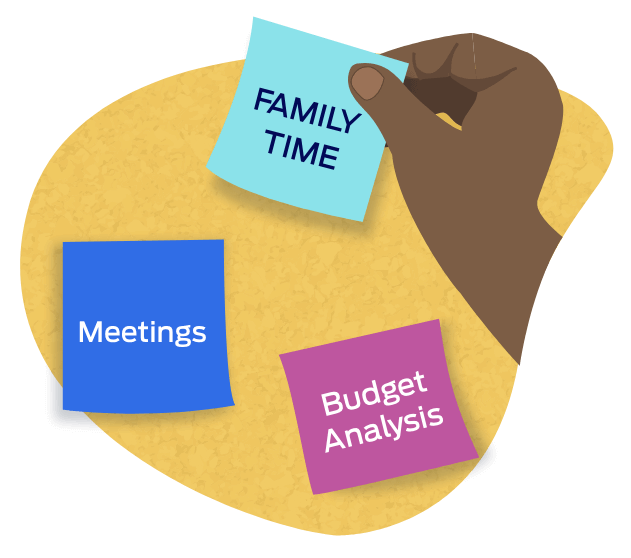77%
OF THOSE EMPLOYED AGREE
I prioritize a balanced personal life over my advancement at work.

AI will help promote a positive work-life balance.
Percent who agree
XX%
52%
OF THOSE EMPLOYED AGREE
To achieve a lifestyle that prioritizes my quality of life, I would be willing to take a 20% pay cut.
To achieve a lifestyle that prioritizes my quality of life, I would be willing to take a 20% pay cut.
PERCENT OF THOSE EMPLOYED WHO AGREE

I don't think it's worth working at a job that increases your personal stress.
Percent who agree
74%
83%
OF PARENTS AGREE
For children to be prepared for adulthood, mental health is more important than academic success.

Feel connected to their role at the company they work for.
Percent Who Feel Connected
Global Average 74%
Younger generations are approaching work in a fundamentally different way than older generations.
Percent who agree
Global Average 74%
Career Coach
69%
of Gen Z and Millennials imagine they will trust AI to provide career/job advice within the next five years, or already do.
Here's a look at how people are shifting work perspectives around the globe
Curious about past trends?
Explore our previous trend books below.
The results for the Ford Trends 2024 survey are based on 16,086 online interviews across 16 countries. The survey was conducted among the general population, ages 18 years and older in the following countries: Australia, Brazil, Canada, China, France, Germany, India, Italy, Mexico, Saudi Arabia, South Africa, Spain, Thailand, United Arab Emirates, United Kingdom and the United States. Respondents from United Arab Emirates and Saudi Arabia were required to be nationals of their respective countries.
While the data within countries were weighted to be representative, the overall sample of 16,086 was not weighted across countries. That is, we do not claim that aggregated data is representative based on country population sizes across the participating countries.
We have defined generational cohorts as follows: Gen Z (18-26 years of age), Millennials (27-42 years of age), Gen X (43-58 years of age), Boomers (59-77 years of age).
All fieldwork for this survey took place between August 11 and September 1, 2023. The survey was 15 minutes in length, on average, with sample sizes per country as follows:
| Region | Country | Sample Size |
|---|---|---|
| Australia | 1,005 | |
| Brazil | 1,009 | |
| Canada | 1,005 | |
| China | 1,004 | |
| France | 1,005 | |
| Germany | 1,001 | |
| India | 1,001 | |
| Italy | 1,007 | |
| Mexico | 1,002 | |
| Middle East (nationals only) | Saudi Arabia | 503 |
| Middle East (nationals only) | UAE | 505 |
| South Africa | 1,007 | |
| Spain | 1,007 | |
| Thailand | 1,003 | |
| U.K. | 1,001 | |
| U.S. | 2,021 | |
| Total | 16,086 |










